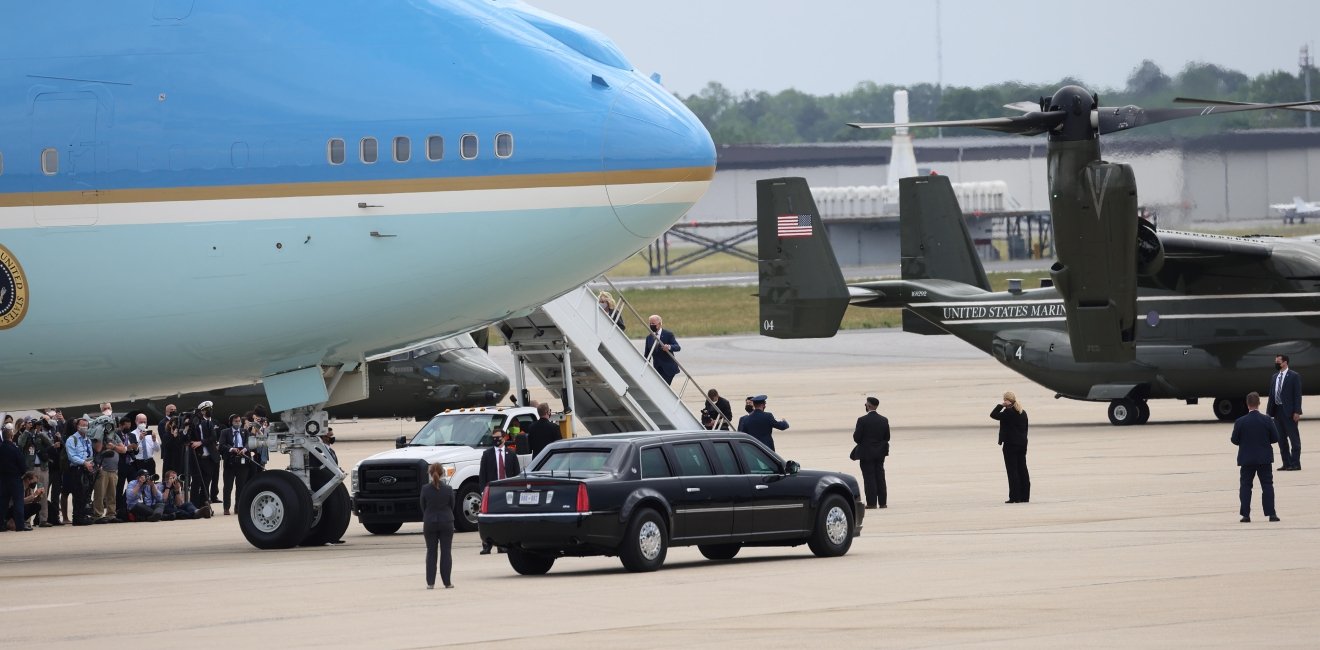Both the African Centre for the Study of the United States and the Institute for Security Studies are part of the Southern Voices Network for Peacebuilding, a network of 22 African organizations that works with the Wilson Center Africa Program to research policy frameworks and approaches for achieving sustainable peace in Africa.
President Biden is visiting Angola. A presidential visit to Africa, once relatively regular, has not occurred since 2015. How is this visit being viewed across Africa, and what is the significance of the trip?
Christopher Isike: Biden’s proposed visit and his record of engagement with Africa puts him one up on his predecessor, Donald Trump, who didn’t visit the continent. It is nevertheless disappointing that he ends his term with a last-minute visit to only one country in mainland Africa. That this is happening in the last days of his presidency suggests Africa is not a priority.
Nevertheless, the visit to Angola marks a turning point in US-Angola relations given the frosty historical relations between both countries until they established diplomatic relations in 1993. It could open Angola to more US investments in transport infrastructure and development, including more cooperation in trade, security, space, and cyber defense. Overall, while Biden’s visit broadly represents a positive trend in US-Africa relations, it holds geopolitical, economic and strategic consequences for Angola-China, Africa-China, and US-China relations.
President Biden’s planned visit to Angola is a significant diplomatic gesture... [signaling] continued US engagement with the continent after years of sporadic high-level visits.
Fonteh Akum: Following the US elections and the impending transition to a new administration, a high-profile foreign trip by an outgoing president is unusual. However, the visit underscores the Biden administration’s intent to solidify its legacy in Africa before leaving office.
President Biden's planned visit to Angola is a significant diplomatic gesture. The trip signals continued US engagement with the continent after years of sporadic high-level visits. It highlights the Biden administration's strategic focus on reestablishing ties and countering geopolitical competition, particularly from China. However, it comes a little too late with the looming presidential transition likely to lead to a shift in the US’ engagement with African countries at a time when global governance reform is primordial.
For Angola, Zambia, and the Democratic Republic of Congo, the focus on the Lobito Corridor underscores the growing agency of African states in building transformative partnerships with external partners. It also acknowledges Africa’s economic and geopolitical importance in addressing global challenges like energy transitions and supply chain resilience.
Beyond symbolism, the visit allows African leaders to deepen long-term partnerships, advocate for increased US investments, and ensure collaborative projects align with the continent's development priorities. However, there is cautious optimism, as many hope the visit will yield tangible outcomes rather than being a one-off political gesture.
What is one thing you would like to see from President Biden during his visit to Angola?
Christopher Isike: President Biden should demonstrate that his stated commitment to Africa is genuinely not only about countering China. Amongst others, this means putting measures in place to ensure US pledges and investments in Angolan transport infrastructure are realized after his term ends. It also means not allowing geopolitical and economic considerations to gloss over the promotion of democracy and good governance in Angola. He should strongly show support for US-initiated programs to support press freedom, independence of the judiciary, and capacity building in Angola’s fight against corruption and money laundering. I would like to see Biden state publicly in Angola that the US will no longer be a safe haven for money looted by corrupt politicians in Africa.
Fonteh Akum: President Biden could use his visit to Angola to consolidate and reinforce existing commitments, such as the Lobito Corridor project, rather than announcing entirely new initiatives. While his ability to commit to long-term strategies is limited at this stage in his presidency, Biden can ensure that existing agreements and projects are on firm footing and communicate a strong case for their continuation under the next administration.
I would like to see Biden emphasize the importance of mutually beneficial partnerships, particularly those that support local communities along the Lobito Corridor. By highlighting how current investments align with Africa’s development priorities—such as infrastructure, job creation, and capacity-building—he can underscore the US' commitment to genuine, long-term engagement.
Additionally, it would be impactful for him to outline a roadmap for how these initiatives can transition smoothly to the next administration, signaling that Africa remains a bipartisan priority in US foreign policy.
For future administrations, what would you like to see going forward related to US-Africa engagement?
Christopher Isike: The Biden administration did well in foregrounding the US' engagement with Africa on the doctrine of equal partnership in recognition of Africa’s rising agency in international affairs. However, whether or not they believe in equal partnership, future administrations, starting with President Trump, should not treat Africa as an afterthought.
Three points to note include:
- Consulting African states when shaping policies that affect them and the continent broadly. For example, future US-Africa Leaders' summits should seek African inputs into the agenda. The venue of future summits should also be rotated to enable Africa to host. This will provide future US presidents an opportunity to visit Africa and engage African leaders in Africa. Even if the US-Africa Leaders Summits do not continue, the US cannot afford to ignore or underinvest in Africa because transnational threats remain persistent in ways that threaten US national security.
- Future administrations, including Mr. Trump's, must stop using the Africa Growth and Opportunity Act (AGOA) as diplomatic leverage over African countries to force US interests.
- The US should foster sustained engagement with Africa beyond the imperatives of geopolitical competition with China and Russia. One way to do this is to ensure Africa has a seat in the UNSC and with veto power.
Fonteh Akum: For future administrations, US partnerships with African countries would benefit from consistency with an emphasis on fostering economic growth, effective governance, and collaboration to address global challenges – including the climate crisis. In a changing geopolitical context, ensuring this partnership evolves and remains central to US foreign policy is vital.
The renewal and repurposing of AGOA beyond 2025 are fundamental to this relationship as it strengthens trade between the US and Africa as the continent operationalizes the African Continental Free Trade Area. As US companies seek alternatives to Chinese suppliers to mitigate tariff impacts, countries like Angola could position themselves as viable partners by enhancing their export capabilities and improving trade relations with the US while maintaining close trade relations with China.
Collaborative regional engagements (such as the Lobito Corridor) and strategic investments under the Partnership for Global Infrastructure and Investment (PGII) provide concrete examples of translating US partnerships into measurable benefits for African nations while balancing US economic and security interests.
The views expressed in this article are those of the respondents and do not necessarily represent the views of the Wilson Center Africa Program or the Southern Voices Network for Peacebuilding.








